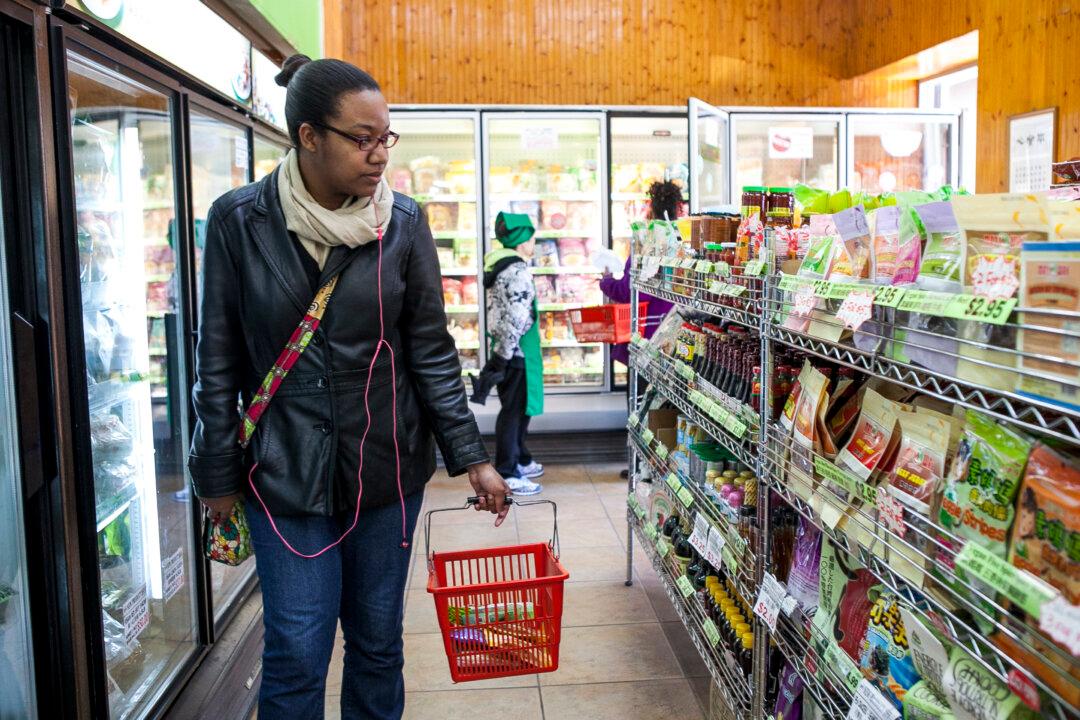It’s something we’ve all seen at supermarkets: sample stations where shoppers can try out different food products.
Now, researchers at Cornell University’s Food and Brand Lab have discovered that if shoppers are given an apple sample, they will buy 25 percent more fruits and vegetables than those who aren’t offered any samples.
A total of 120 shoppers were randomly given a sample of either an apple, a chocolate chip cookie, or no sample at the beginning of their shopping trip. Then, researchers tracked their purchases: Those who were given a chocolate chip cookie bought 28 percent less fruits and vegetables than those who were given an apple sample, according to the newly published study in the Psychology & Marketing journal.

Peaches at the Union Square farmer's market on August 8, 2014. Samira Bouaou/Epoch Times






